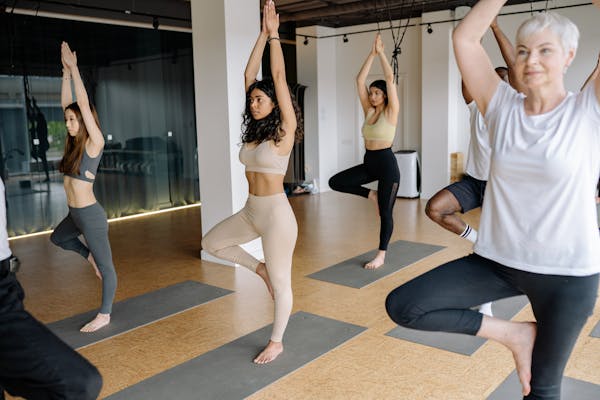The Benefits of Bodyweight Workouts
Bodyweight workouts offer a multitude of benefits for individuals of all fitness levels, from beginners to advanced athletes. Here are some of the key advantages:
1. Convenience and Accessibility:
Bodyweight exercises require little to no equipment, making them ideal for people who prefer to work out at home, travel frequently, or have limited access to a gym. With bodyweight workouts, you can get a great workout anytime, anywhere, using only your bodyweight for resistance.
2. Cost-Effective:
Unlike gym memberships or expensive fitness equipment, bodyweight workouts are entirely free. You don't need fancy machines or weights to get a challenging workout—just your own body and a willingness to push yourself.
3. Versatility and Variety:
Bodyweight exercises can be adapted to suit a wide range of fitness levels and goals, making them incredibly versatile. Whether you're looking to build strength, improve cardiovascular fitness, or increase flexibility, there's a bodyweight exercise for you. Plus, with endless variations and combinations, you'll never get bored with your workouts.
4. Functional Fitness:
Many bodyweight exercises mimic everyday movements and activities, making them highly functional for real-life situations. By training with bodyweight exercises, you'll improve your strength, balance, coordination, and flexibility, enhancing your ability to perform daily tasks and activities with ease.
Designing Effective Bodyweight Workouts
To maximize the effectiveness of your bodyweight workouts, it's important to design a well-rounded routine that targets all major muscle groups and includes a variety of exercises. Here are some tips for designing effective bodyweight workouts:
1. Include Compound Movements:
Compound exercises, which engage multiple muscle groups at once, should form the foundation of your bodyweight workouts. Examples include squats, lunges, push-ups, pull-ups, and planks. These exercises provide the most bang for your buck and help you build strength and muscle mass efficiently.
2. Incorporate Cardiovascular Exercises:
In addition to strength training, include cardiovascular exercises such as jumping jacks, high knees, mountain climbers, or burpees to elevate your heart rate and burn calories. Integrate these exercises into circuits or intervals to create a high-intensity, calorie-burning workout.
3. Focus on Form and Technique:
Maintaining proper form and technique is crucial for preventing injuries and maximizing the effectiveness of bodyweight exercises. Pay attention to your alignment, engage your core muscles, and move through the full range of motion with control and precision.
4. Progress Over Time:
As you become stronger and more proficient with bodyweight exercises, challenge yourself by increasing the intensity, volume, or difficulty of your workouts. Progressively overload your muscles by adding more repetitions, sets, or resistance to continue seeing improvements in strength and fitness.
Getting Started with Bodyweight Workouts
Ready to unlock the power of bodyweight workouts and get fit anywhere, anytime? Here's how to get started:
1. Set Clear Goals:
Before you begin, clarify your fitness goals and objectives. Whether you're aiming to lose weight, build muscle, improve endurance, or enhance overall fitness, having a clear vision of what you want to achieve will help guide your workouts and keep you motivated.
2. Create a Routine:
Design a structured workout routine that includes a mix of strength training, cardiovascular exercise, and flexibility work. Aim to exercise at least three to five times per week, with each session lasting 30 to 60 minutes, depending on your fitness level and goals.
3. Start Slowly:
If you're new to exercise or returning after a break, start slowly and gradually increase the intensity and duration of your workouts over time. Listen to your body, and don't push yourself too hard too soon to avoid injury or burnout.
4. Stay Consistent:
Consistency is key when it comes to seeing results with bodyweight workouts. Make exercise a non-negotiable part of your daily routine, and prioritize consistency over intensity. Even short, frequent workouts can yield significant improvements in fitness and overall health over time.
5. Stay Hydrated and Fuel Your Body:
Remember to stay hydrated before, during, and after your workouts, especially if you're exercising outdoors or in hot weather. Fuel your body with nutritious foods to support energy levels, recovery, and performance, and listen to your body's hunger and fullness cues to ensure you're adequately nourished.





















































































